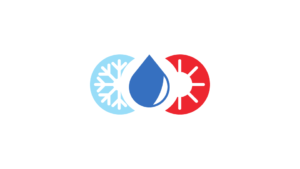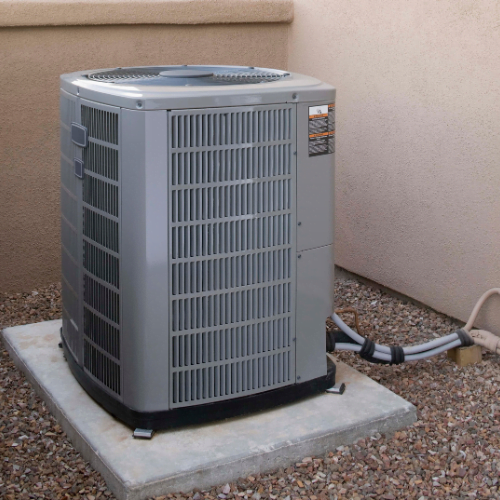Can a Power Surge Damage Your HVAC? Tips for Protecting Your HVAC System
Tips for Protecting Your HVAC System
Introduction
Power surges can be a common occurrence in our modern lives. They happen when there is a sudden increase in electrical voltage, which can cause damage to our electronic devices. While we often think about protecting our computers and televisions from power surges, we may not consider the impact they can have on our HVAC systems. In this article, we will explore whether a power surge can damage your HVAC system and provide some tips on how to protect it.Understanding Power Surges
Before we delve into the potential damage that power surges can cause to your HVAC system, it’s important to understand what exactly a power surge is. A power surge is a short burst of high electrical voltage that exceeds the normal flow of electricity in your home. It can be caused by lightning strikes, power outages, or even faulty wiring.As a homeowner in the scorching heat of Las Vegas, your air conditioner is essential for your comfort and well-being. While it may feel less important in the scorching summer, your heating system is just as vital in the cold desert nights. And if you have a heat pump providing your heating AND cooling, you want to make extra sure that nothing happens to it. With that in mind, have you ever wondered what could happen if a power surge occurs and affects your HVAC system?
Let’s take a look at the potential dangers of power surges and ideas for how to protect your HVAC system using surge protectors.
The Impact on Your HVAC System
Now that we have a basic understanding of power surges, let’s explore how they can affect your HVAC system. The sensitive electronic components in your HVAC system, such as the control board and thermostat, can be easily damaged by a sudden surge in electrical voltage. This can lead to malfunctions, breakdowns, or even complete system failure. Additionally, power surges can cause damage to other important components of your HVAC system, such as the compressor and fan motor. These components are crucial for the proper functioning of your system, and any damage to them can result in costly repairs or replacements.Can You Plug an Air Conditioner into a Surge Protector?
Unfortunately, no. Even window air conditioners shouldn’t be plugged into a surge protector. Since air conditioners can draw a lot of power, especially on a scorching day in Spring Valley, Paradise, or Henderson, all AC units with a plug need to connect directly to an outlet. Surge protector power strips that you can buy in stores may malfunction or start a fire when overloaded by the demands of an AC. Learn more
Larger central cooling systems require a dedicated surge protector to be installed at the electrical panel. It’s best to consult with a professional electrician to determine the appropriate surge protection solution for your specific setup.
The Importance of HVAC Power Surge Protectors
To safeguard your HVAC system from potential damage caused by power surges, consider having a power surge protector for your air conditioner installed. These electrical protection systems are designed to detect and divert excess electrical energy away from your air conditioner, preventing it from reaching and damaging the sensitive components. By investing in a whole-home surge protector, you can provide an extra layer of protection to your entire HVAC system and prevent avoidable breakdowns.
Can You Plug an Air Conditioner into a Surge Protector?
Unfortunately, no. Even window air conditioners shouldn’t be plugged into a surge protector. Since air conditioners can draw a lot of power, especially on a scorching day in Spring Valley, Paradise, or Henderson, all HVAC systems with a plug need to connect directly to an outlet. Surge protector power strips that you can buy in stores may malfunction or start a fire when overloaded by the demands of an AC. Learn more
Larger central cooling systems require a dedicated surge protector to be installed at the electrical panel. It’s best to consult with a professional electrician to determine the appropriate surge protection solution for your specific setup.
Tips for Protecting Your HVAC System
Now that we understand the potential risks, let’s discuss some tips for protecting your HVAC system from power surges:- Install Surge Protectors: Surge protectors are devices that are designed to divert excess electrical voltage away from your HVAC system. By installing surge protectors at key points in your electrical system, such as the main electrical panel and the HVAC unit itself, you can help prevent power surges from reaching your HVAC system.
- Unplug During Storms: Thunderstorms and lightning strikes are common causes of power surges. To minimize the risk of damage to your HVAC system, it is advisable to unplug it during severe storms or use a surge protector to disconnect the power supply.
- Regular Maintenance: Proper maintenance of your HVAC system can go a long way in protecting it from power surges. Regular inspections by a professional technician can help identify any potential issues and ensure that your system is in good working condition.
- Consider Whole-House Surge Protection: If power surges are a frequent occurrence in your area, you may want to consider investing in a whole-house surge protection system. This system provides protection to all the electrical devices in your home, including your HVAC system.
- Check Your Home’s Wiring: Faulty or outdated wiring can increase the risk of power surges. It is important to have a qualified electrician inspect and update your home’s wiring if necessary.
-
Addressing Electrical Problems with Your Air Conditioner
Power surges can lead to various electrical problems in your air conditioner or heat pump. These issues can range from faulty wiring to damaged capacitors or relays. If you notice any of the following signs, it’s important to contact a professional HVAC technician to diagnose and resolve the problem:
- AC not blowing cold air after a power surge, or not cooling your home effectively.
- Frequent tripping of circuit breakers when the AC runs.
- Strange noises such as buzzing or clicking sounds coming from the air conditioner.
- Unusual smells such as burning odors emanating from the unit.
A trained HVAC professional will have the expertise to identify and rectify these air conditioner electrical problems promptly, ensuring optimal performance and longevity of your air conditioning system.
Conclusion
While power surges can pose a threat to your HVAC system, there are steps you can take to protect it. By installing surge protectors, unplugging during storms, and ensuring regular maintenance, you can minimize the risk of damage and prolong the lifespan of your HVAC system. Remember, prevention is always better than costly repairs or replacements. By following these tips and being proactive in protecting your HVAC system, you can ensure that it continues to provide you with reliable and efficient heating and cooling for years to come.Protect Your Comfort with Eco Friendly Air Conditioning & Heating of Las Vegas
In the blistering heat of a Las Vegas summer, your air conditioner is a lifeline to comfort. If you’ve experienced a power surge or are facing electrical problems with your air conditioner or heat pump, reach out to the trusted HVAC professionals at Eco Friendly Air Conditioning and Heating Repair of Las Vegas.
We can assess the situation, provide the necessary repairs, and offer guidance on surge protection solutions tailored to your needs. Book an appointment online or call us at 702-516-9999 today!










